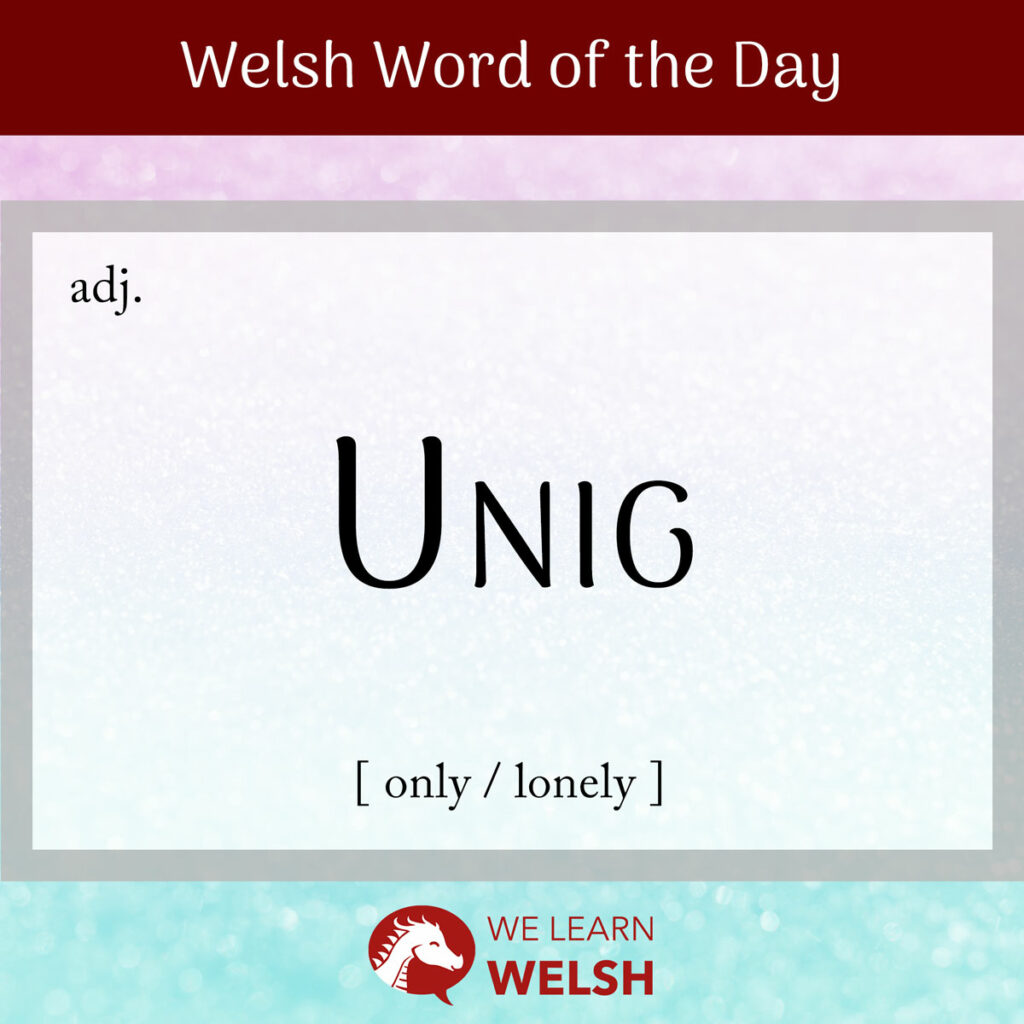Today’s Welsh word of the day is unig. It’s a fun one because it actually has two meanings: only and lonely. You may think this would lead to a lot of confusion, but there’s actually a simple trick to tell them apart which we’ll get to in a moment.
unig
only / lonely
Unig probably comes from the word un (one) being combined with the adjectival suffix –ig, but it may also have been borrowed directly from the Latin unicus (only or unique).
It’s a very easy word to use because it doesn’t mutate, and it doesn’t change for a feminine noun or a plural. You also don’t have to learn comparative degrees of this word; you just say mwy unig for lonelier for example, or mwyaf unig for most lonely.
Fo oedd fy unig frawd.
He was my only brother.
Now, the way you can tell whether someone is meaning lonely or unique / only is by the placement of the adjective relative to the noun.
Usually, when a noun and adjective are paired in Welsh, we put the adjective second. When we place unig after the noun, it means lonely. So one good example would be plentyn unig (a lonely child). If we want to reverse this and say an only child, we have to actually put the adjective in front of the noun. And doing so in Welsh causes a soft mutation, so it would be unig blentyn.
Also, there’s a different word for unique as in special rather than unique as in only, which is unigryw. Other related words include unigo (to isolate), unigrwydd (loneliness) and unigol (individual).
Teimlais yn unig iawn am sbel hir ar ôl i ni wahanu.
I felt very lonely for a long time after we broke up.
As you can imagine, unig also turns up in a lot of useful everyday phrases, like:
- yn unig = solely / only, also lonelily
- yn unig swydd = solely / expressly
- nid yn unig = not only
- am un tro yn unig = one time only
- unig fasnachwr = a sole trader
- unig-anedig = only born / an only child
Dim ond (nothing but) is commonly used in circumstances where you could also say unig. For example, if you’re saying there are only eight people coming to your party, you can either say wyth yn unig or dim ond wyth.
Since humans are inherently social creaduriaid (creatures), we’re quite prone to teimlo’n unig (feeling lonely) whenever we don’t have teulu (family), ffrindiau (friends) or cymuned (community) around us.
Rydyn ni’n edmygu’r deiliant unigryw ar y goeden hon.
We’re admiring the unique foliage on this tree.
Being ar eich pen eich hun (on one’s own) and digwmni (literally without company, also means lonely) can cause tristwch (sadness) and even iselder (depression). Research even suggests that prolonged unigrwydd leads to worse iechyd (health), which is why the rise in reported unigrwydd particularly among plant yn eu harddegau (teenagers), hen bobl (old people), and pobl anabl (disabled people)
They say it takes a pentref (village) to raise a plentyn (child) – but perhaps all of us would thrive more if we had a pentref and a cymuned around us. We hope you’re able to find a bit of virtual cymuned with us!


